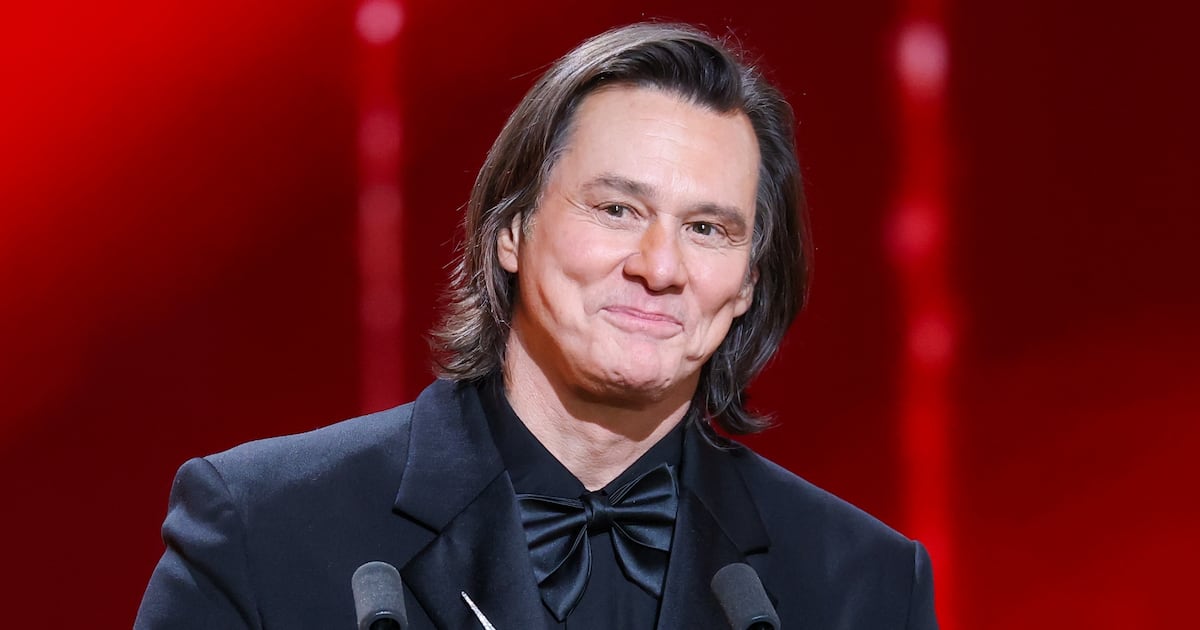The seemingly minor-key, indie rom-com The Persian Version (Oct. 20) is a deceivingly epic movie. Just when you’ve settled in to watch a young woman navigate life after a breakup, director and writer Maryam Kesharvarz delivers a multi-generational, mother-daughter story spanning over five decades and two continents, while involving a revolving door of eccentric characters—including a straight drag queen and five rowdy brothers.
Keshravarz’s third narrative film, which made a splash at this year’s Sundance Film Festival, is a tragicomic tale with as much exposition and backstory as a Martin Scorsese movie. (In fact, it would probably benefit from the runtime of one.) This overly ambitious storytelling can occasionally veer into superfluous territory and feel a bit cramped; there were a few times during the first hour where I asked myself, “Where are we going with all of this?” However, The Persian Version manages to stick the landing with a profound and tear-jerking ending. It’s a solid showing for Keshavarz as a noteworthy filmmaker and a welcome entry into the “Movies That Make You Want to Call Your Mom” canon.

The Persian Version is initially set in the early 2000s, when a lesbian, Iranian-American woman named Leila (Layla Mohammadi) gets pregnant by a British drag performer (Tom Bryne) fresh off the heels of her divorce. Oddly enough, this plot point seems to become a footnote, as the movie shifts its focus toward Leila’s stern, industrious mother, Shireen (Niousha Noor). Her childhood in 1970s Iran and the subsequent hardships she experienced as an immigrant in the U.S. take precedence. This ultimately for the betterment of the film, as Leila is not the most riveting protagonist. Plus, Noor’s multi-layered performance is the main highlight and grounding force of the movie.
Unlike other stories focused on tensions between mothers and daughters, we don’t spend much of the film watching Leila and Shireen getting into screaming matches or even the specifics of their vaguely fraught dynamic. (On the other hand, there are plenty of direct explainers on Iranian culture and history that feel somewhat obligatory.) Early on in the film, we see a flashback of Leila bringing her current ex-wife to her family’s home for a holiday dinner, before her mother orders them to leave. And when Shireen discovers that Leila is pregnant and plans on keeping her baby, she’s predictably disappointed with her daughter’s “recklessness.”
Yet watching Shireen struggle to show affection to her only daughter, while she easily mingles with her five sons, paints a clear-enough portrait of their disconnect. There’s a popular assumption that women are tougher on their daughters than their sons because they can immediately see themselves (including their flaws) in them, and the film plays into that. Viewers can also interpret a level of resentment Shireen has towards Leila because of the privilege her sacrifices have afforded her. Still, it takes Leila finally learning about dark secrets from her grandmother, Mamanjoon (Bella Warda), to really break down this barrier and build an understanding of one another. Kesharvarz makes Shireen’s backstory both jarring and comedic enough to warrant such a narrative detour.
At the same time, in the film’s present-day timeline, Leila is figuring out whether she wants to pursue a relationship with the father of the child. (I understand that sexuality is fluid, but it feels like the movie completely forgets that she’s introduced to us as a lesbian.) Her father and Shireen’s husband, Ali Reza (Bijan Daneshmand), is also waiting on a heart transplant. The subplot of Ali Reza’s hospitalization is curiously forgettable in this crowded family comedy. However, the reality of his heart condition becomes crucial in flashbacks, as we watch Shireen become the main provider for their family and witness the hurdles non-U.S. citizens experience in the health-care system.
Despite how plot-heavy The Persian Version is, Keshavarz demonstrates a refreshing amount of restraint regarding its sentimentalism. When it ended, I couldn't help but be reminded of a similar movie I found to be too mawkish: 2022’s Everything Everywhere All at Once. Both films tackle immigration and mothers failing to connect with their queer daughters. Oddly enough, they’re equally madcap, even though one decidedly doesn’t feature a hot dog fingers universe.

However, I found the Daniels’ Oscar-winning movie to be overly saccharine in its second and third acts, undercutting Evelyn and Jobu’s long-awaited reconciliation at the end. With a less-skillful director, The Persian Version could have easily fallen into the same trap. However, the script holds off on showing viewers why all of these ultimately fateful moments and personal histories matter until exactly the right moment, providing an overwhelming moment of catharsis.
The Persian Version might be the sort of movie you recommend with a disclaimer, forewarning others of all of the directions it goes in and some clunky editing choices. (An early scene with Leila and her ex has one of the least-conspicuous uses of ADR I’ve ever witnessed in a film.) But by the end, you feel silly for questioning any of the film’s bold choices in the first place. You’ll probably also want to apologize to your mom.






